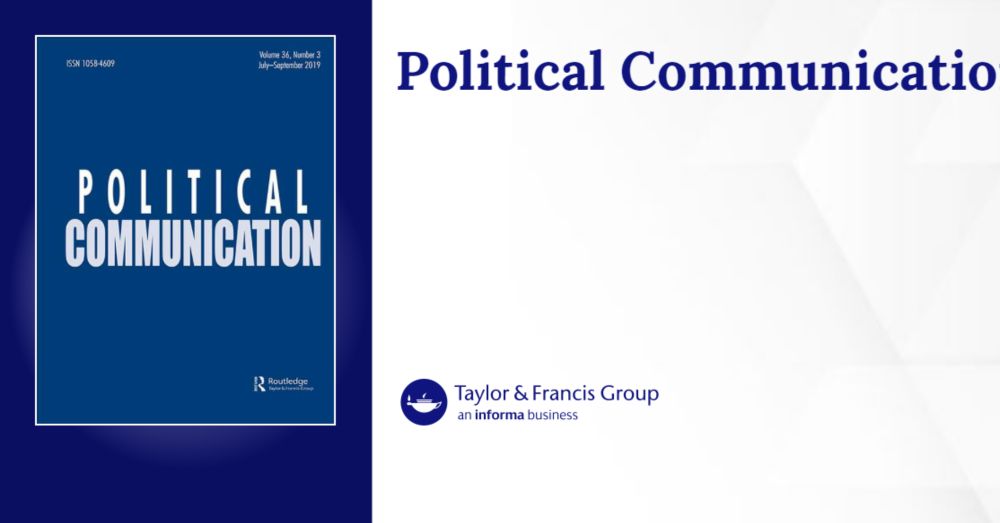
CSS-Group: https://css-synosys.github.io/
📅 Apply: Feb 1–Mar 15 for October start.
💌 Submit a 2-page motivation letter.
More info: zemki.uni-bremen.de/...

📅 Apply: Feb 1–Mar 15 for October start.
💌 Submit a 2-page motivation letter.
More info: zemki.uni-bremen.de/...
Keynotes: @lauraknelson.bsky.social and @lorenzspreen.bsky.social
computational-social-science.org/workshops/20...
Keynotes: @lauraknelson.bsky.social and @lorenzspreen.bsky.social
computational-social-science.org/workshops/20...
Last night a preprint dropped that tries to get at this with some numbers. My piece in @science.org (and 🧪🧵 coming):

Preprint suggests “industry influence in social media research is extensive, impactful, and often opaque.”🧪


@jasminriedl.bsky.social
@flxvctr.bsky.social
@janalasser.bsky.social @noupside.bsky.social @damiantrilling.net
some4dem.eu/activities/e...


@jasminriedl.bsky.social
@flxvctr.bsky.social
@janalasser.bsky.social @noupside.bsky.social @damiantrilling.net
some4dem.eu/activities/e...


some4dem.eu/activities/e...
www.techpolicy.press/the-trump-li...

www.techpolicy.press/the-trump-li...
RageCheck is a free tool that analyzes online content for manipulative framings—language designed to provoke emotional reactions rather than inform.
RageCheck helps you make more informed decisions about what to believe & share:
www.ragecheck.com/about

RageCheck is a free tool that analyzes online content for manipulative framings—language designed to provoke emotional reactions rather than inform.
RageCheck helps you make more informed decisions about what to believe & share:
www.ragecheck.com/about
Bluesky would become a thought-leader by reintroducing such a feature.
Poke @mmasnick.bsky.social @aaron.bsky.team
www.nature.com/articles/s41...


Bluesky would become a thought-leader by reintroducing such a feature.
Poke @mmasnick.bsky.social @aaron.bsky.team
(Temporarily open access)
Read them, love them, use them for your courses! 🔥
Check the 🧵 below to access them
Plz repost for maximum diffusion

(Temporarily open access)
www.nature.com/articles/s41...


www.nature.com/articles/s41...
...Along with some other fantastic entries.
Check them out!
(And maybe go ahead and download them... while you can.)

...Along with some other fantastic entries.
Check them out!
(And maybe go ahead and download them... while you can.)
The Logic of Connective Faction:
How Digitally Networked Elites and Hyper-Partisan Media Radicalize Politics
w/ @yunkangyang.bsky.social & @mikecowburn.bsky.social
Online radicalization doesn't just affect the public.
It also reshapes how elites & parties behave. doi.org/10.1080/1058...

The Logic of Connective Faction:
How Digitally Networked Elites and Hyper-Partisan Media Radicalize Politics
w/ @yunkangyang.bsky.social & @mikecowburn.bsky.social
Online radicalization doesn't just affect the public.
It also reshapes how elites & parties behave. doi.org/10.1080/1058...
✔️ Submission deadline: February 2nd, 2026
✔️Acceptance Notification: February 16th, 2026
View the guidelines here:
lnkd.in/eBHVe2tP

✔️ Submission deadline: February 2nd, 2026
✔️Acceptance Notification: February 16th, 2026
View the guidelines here:
lnkd.in/eBHVe2tP
🇩🇰🇫🇮🇳🇴🇸🇪🇮🇸
The brand new Nordic Society for CSS welcomes all researchers and practitioners based in the Nordics. The Society will promote student mobility, events, and education initiatives.
Join for free: nosocss.org/join.html.
🇩🇰🇫🇮🇳🇴🇸🇪🇮🇸
The brand new Nordic Society for CSS welcomes all researchers and practitioners based in the Nordics. The Society will promote student mobility, events, and education initiatives.
Join for free: nosocss.org/join.html.
Apply by Feb 4, 2026
www.santafe.edu/gwcss

Apply by Feb 4, 2026
www.santafe.edu/gwcss

www.reuters.com/investigatio...

www.reuters.com/investigatio...
www.givingwhatwecan.org/birth-lottery

www.givingwhatwecan.org/birth-lottery



@elgarpublishing.bsky.social

@elgarpublishing.bsky.social

